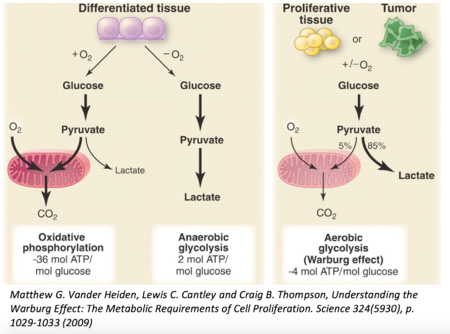Karavyraki 2017 MiPschool Obergurgl
| Mitochondrial function and morphology linked to metabolic differences in normal, dysplastic and cancerous oral cells. |
Link: MitoEAGLE
Karavyraki M, Porter RK (2017)
Event: MiPschool Obergurgl 2017
The aim of this project is to characterize differential mitochondrial function/morphology in comparisons of normal, dysplastic and cancerous oral cells. Oral squamous cell carcinoma (OSCC) is the sixth most common cancer in the world and accounts for more than 90% of oral malignancies. OSCC is usually preceded by the oral premalignant lesions, mainly oral leukoplakia (OLK) after repeated insults of carcinogens, tobacco[1]. We are currently comparing the bioenergetics profiles of dysplastic oral keratinocyte (DOK) cells with immortal squamous cell carcinoma 4 (SCC4) cells, both derived from human tongue.
Using intact cells in an Agilent Seahorse Flux XF-3 Analyzer, we have been able to demonstrate that DOK (4616±4 nmol O2/min/106 cells) and SCC4 (4389±23 nmol O2/min/106 cells) cells have demonstrable oxygen consumption rates. Furthermore, by addition of a combination of rotenone and antimycin A, we have been able to demonstrate that 77% OCR is due to oxidative phosphorylation in SCC4 cells. Mitochondrial oxygen consumption in both cell types is inhibited by oligomycin. However, uncouplers carbonyl cyanide-p-trifluoromethoxyphenyl-hydrazone (FCCP), carbonyl cyanide m-chlorophenyl hydrazine (CCCP) and 2,4 dinitrophenol appear to inhibit oxygen consumption in SCC4 cells. It is also noteworthy that neither gramicidin D nor veratridine increased oxygen consumption in SCC4 cells.
Future work will entail characterising the bioenergetic profile of intact and permeabilized DOK and SCC4 cells in suspension using Oroboros high-resolution respirometry. Bioenergetics differences will be correlated with morphological changes in mitochondria, while NMR metabolite analysis will be used to investigate their metabolite profile. Furthermore cells will be characterised for invasiveness, migration, anoikis resistance and hypoxia.
• Bioblast editor: Kandolf G
• O2k-Network Lab: IE Dublin Porter RK
Labels: MiParea: Respiration Pathology: Cancer
Organism: Human
Preparation: Intact cells
Coupling state: LEAK
Pathway: ROX
HRR: Oxygraph-2k
Event: B1
Affiliations
- School Biochem Immunol, Trinity Biomed Sci Inst (TBSI), Trinity College Dublin, Ireland. – [email protected]
Figure 1
References and support
- Dong Y, Zhao Q, Ma X, Ma G, Liu C, Chen Z, Yu L, Liu X, Zhang Y, Shao S, Xiao J, Li J, Zhang W, Fu M, Dong L, Yang X, Guo X, Xue L, Fang F, Zhan Q, Zhang L (2015) Establishment of a new OSCC: cell line derived from OKL and identification of malignant transformation-related proteins by differential proteomics approach. Sci Rep 5:12668.
- Selected mentor: Prof. Richard K. Porter


